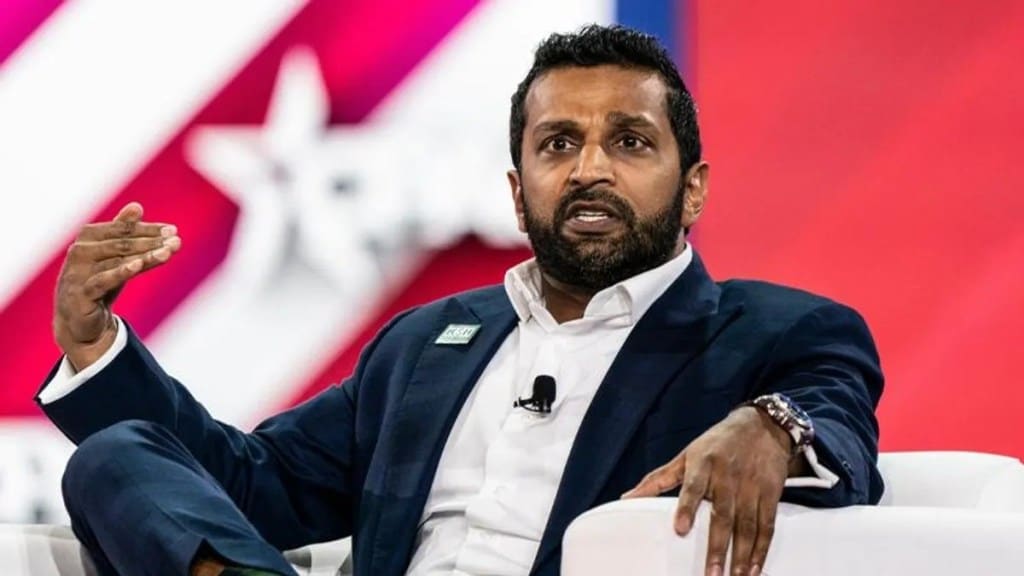Kashyap ‘Kash’ Patel, an influential Indian-American figure in U.S. national security, is making headlines as a potential pick for CIA Director under President-elect Donald Trump’s upcoming administration. Patel’s rise from a public defender to a key player in Washington has been marked by significant achievements and controversies, showcasing his complex and impactful career.
Early Life and Education
Born on February 25, 1980, in New York City to Indian immigrant parents from East Africa, Patel’s heritage is rooted in Vadodara, Gujarat. His parents moved to the United States in the 1970s in search of better opportunities, laying the foundation for Patel’s future success. Patel completed his undergraduate studies at the University of Richmond and went on to earn a law degree and a Certificate in International Law from University College London.
Career Beginnings: From Defence Lawyer to Government Servant
Patel’s career began as a public defender in Miami, where he spent nearly nine years handling high-stakes criminal cases, including murder, drug trafficking, and financial crimes. This early experience honed his skills in legal defence and strategic litigation, setting the stage for his move into public service.
Patel transitioned to the Department of Justice (DOJ), serving as a Liaison Officer to the Joint Special Operations Command. This role placed him at the forefront of counterterrorism efforts, collaborating with elite units to coordinate global operations against high-value terrorist targets. His work in this capacity solidified his expertise in national security and positioned him as a trusted asset in intelligence circles.
Key Roles and Achievements
Patel’s profile rose significantly when he joined the House Intelligence Committee under Chairman Devin Nunes. Here, Patel led the investigation into Russian interference in the 2016 U.S. presidential election. His work culminated in the “Nunes Memo,” which criticized the FBI’s handling of surveillance practices. The memo received widespread attention and drew praise from Trump and his supporters, bolstering Patel’s reputation as a dedicated and formidable figure within Republican circles.
During Trump’s first term, Patel served in several high-ranking positions, including Principal Deputy to the Acting Director of National Intelligence. In this role, he oversaw operations spanning all 17 agencies of the US intelligence community. Patel also worked as the Deputy Assistant to the President and Senior Director for Counterterrorism at the National Security Council. Here, he managed counterterrorism initiatives, notably overseeing missions that led to the elimination of ISIS leader Abu Bakr al-Baghdadi and Al-Qa’ida leader Qasem al-Rimi. Additionally, Patel facilitated the safe return of American hostages, further cementing his status as a strategic leader.
A Controversial Figure
Patel’s career has not been without controversy. His role in authoring the “Nunes Memo” attracted both praise and criticism, with some viewing it as a necessary check on FBI practices, while others argued it undermined federal investigations. Patel’s loyalty to Trump has also drawn scrutiny, as his alignment with the former president’s policies and rhetoric has been perceived as overly partisan by some members of the intelligence community.
Toward the end of Trump’s presidency, Patel was under consideration for the role of Deputy CIA Director. However, his appointment was met with resistance from within the agency, notably from then-CIA Director Gina Haspel, who reportedly threatened to resign if he were appointed. Despite the challenges, Patel’s steadfast support for Trump and his strategic insight kept him close to the center of power.
The Path to Potential CIA Leadership
With Trump’s return to the White House, Patel’s name has once again emerged as a contender for a top intelligence post. His experience in counterterrorism, coupled with his legal and policy acumen, positions him as a viable candidate to lead the CIA. Supporters argue that his history of confronting established norms and advocating for intelligence reform could bring a fresh perspective to the agency.
However, his potential appointment raises questions about partisanship and the independence of intelligence operations. Critics warn that Patel’s close ties to Trump could influence decision-making within the CIA, potentially impacting the agency’s impartiality.
Bottomline
Kashyap ‘Kash’ Patel’s journey from a public defender to a potential CIA Director nominee highlights a career marked by ambition, loyalty, and strategic prowess. His role in shaping counterterrorism strategies and leading high-profile investigations showcases a deep commitment to national security. As the Senate gears up for confirmation hearings, the debate over Patel’s suitability for the role will likely focus on balancing his experience with concerns about maintaining the CIA’s nonpartisan stance. Whether Patel ascends to lead the CIA or assumes another significant position, his influence on US intelligence and policy is undeniable, underscoring the broader impact of Indian-Americans in public service.


